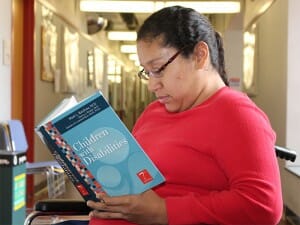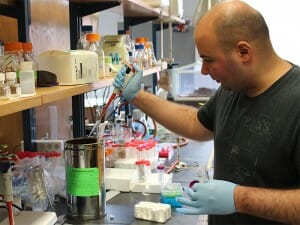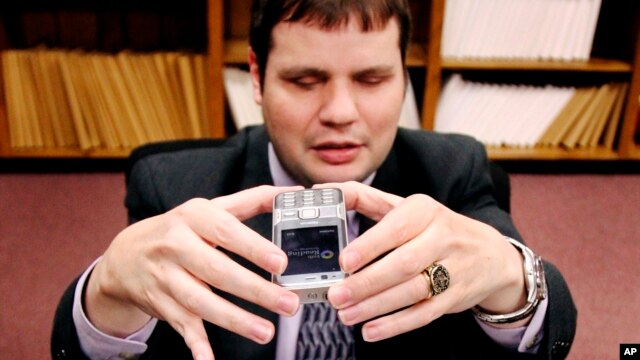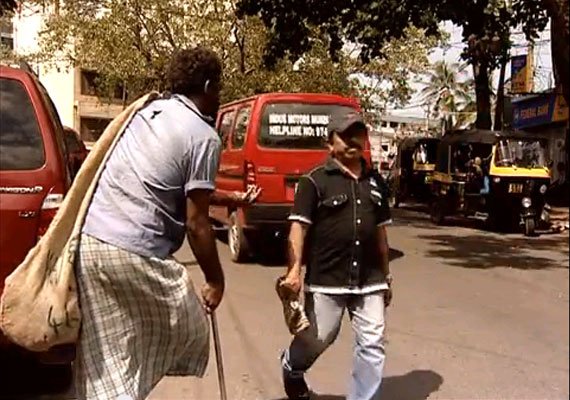Since 1987, a group of exceptional faculty from multiple disciplines has been working at The Center for Developmental Neuroscience and Developmental Disabilities
(CDN) at the College of Staten Island in order to understand the
etiology of mental diseases, intellectual and developmental
disabilities, and other brain diseases as well as to provide outstanding
education to undergraduate and graduate students.
Antony Castiello, a 2012 graduate from the Master's Program in Neuroscience is cloning ion channel genes to study the effect of pharmacological inhibitors isolated from spiders and scorpions. Antony is very interested in understanding molecular and physiological changes in individuals with Autism.
In 2002, the professors of the CDN established the Master’s program
in Neuroscience and Developmental Disabilities with the idea of
increasing the opportunities of higher education for Staten Island
students interested in the neurological aspects of disease.

Maria Saldarriaga is interested in understanding the effects of congenital prenatal development problems. Maria just joined the program in Fall of 2014 and she plans on to conduct her research in cerebral palsy.

Maria Saldarriaga is interested in understanding the effects of congenital prenatal development problems. Maria just joined the program in Fall of 2014 and she plans on to conduct her research in cerebral palsy.
Since the program’s inception, more than 450 have enrolled in the
Master’s in Neuroscience, consequently having an extremely positive
impact on the community. The program allowed numerous students to
continue with their education in healthcare (MD, dentistry, nursing) at
the doctoral level, or to directly enter the job market at local Staten
Island institutions dedicated to assisting people with disabilities such
as Eden II, The G.R.A.C.E Foundation, and Staten Island University
Hospital. Very successful scientists have started their careers with the
Master’s in Neuroscience program. These remarkable professionals are
now at CUNY, SUNY Downstate, Harvard University, University of Chicago,
Washington University, Columbia University, Cornell University, Albert
Einstein College, MIT, University of San Francisco, Stanford University,
NYU, and the New York State Institute for Basic Research (IBR). Among
these professionals, who had their start at the CDN, is Dr. Zaghloul
Ahmed, who is now a Professor in Physical Therapy and also Dr. Abdeslem
El-Idrissi, who is now the Chair of the Department of Biology at CSI.
More recently, Jasmen Khan, a 2014 graduate, became the Science Outreach
Coordinator at Rockefeller University. In fact, the CDN boasts the
largest number of Neuroscience Doctoral students in the entire CUNY
system, and offers the only Neuroscience Master’s program with emphasis
on developmental and intellectual disabilities in the country.
Another remarkable success story is that of Antony Castiello, a
Master in Neuroscience graduate who is currently doing research as an ad
honorem volunteer in Dr. Dan McCloskey’s and Dr. Sebastien Poget’s labs
at the CDN.
Like most students working with CDN faculty, Castiello performs his
research because of his passion for neuroscience—without any promise of
monetary gain. He is a native Staten Islander who graduated from
Tottenville High School in 2003 and enrolled at CSI to pursue a
Bachelor’s degree in Science[TM1] and Economics, which he received in
2007. After a two-year hiatus, he chose to pursue the Master’s degree in
Neuroscience at the CDN,which he finished in 2012. Castiello has a very
personal motivation and interest in neuroscience that goes beyond the
desire for a job. He has been working tirelessly to understand the
chemical and physiological changes underlying Asperger Syndrome because
he has been diagnosed with this syndrome. Dedicated students like
Castiello and passionate faculty make the CDN one of the most unique
research centers in the country.
When applying to the Master’s program, Castiello wrote: “I want to
study neuroscience to use my knowledge of biology and psychology to find
ways to alter the chemicals in the brains of people with Asperger’s so
they can function as normal individuals and succeed in life.”
He also quoted that his Asperger’s would be a great help for his
research because he could devote as much time to studying since he does
not have a social life.
In May of 2013, Castiello published his thesis entitled Developmental
Hypothyroidism Effects on Dopamine 2 Receptors in the Dorsal Striatum
in Adult Rats. During his research, he discovered that “there are
hormonal sexual differences between males and females with Asperger.”
Recently, Maria Saldarriaga, a young woman who is highly motivated to
understand what progressive supranuclear palsy has done to her body and
her brain, applied to the Center and has been accepted as a Master’s
student in Neuroscience. In her letter to the Admissions Committee,
Saldarriaga referred to herself as a “Renaissance woman” due to the fact
that she has “adapted various coping mechanisms to deal with the
challenges I have faced, both psychologically and physically.” She also
explained that she is “still curious to this day to explore on an
exterior scientific level my anomalies. This is my motivation to
understand what makes me different—this will allow me to embrace,
understand, and work with my challenges instead of fearing them.
Neuroscience will give me the tools to discover more about my ailments
and to the use that knowledge to provide a better quality of life for
myself and others.”
One of the most important aspects of this Master’s program at the CDN
is the amount of scientific research that students conduct under mentor
supervision and the numerous laboratory skills they acquire–skills that
easily transfer into any other research settings. Students conduct at
least two semesters of research followed by a public defense of their
data in front of a panel of professors. These practical skills are one
of the keys of the success of the Master’s program in Neuroscience at
CSI. However, all this training in active neuroscience laboratories
conducting experiments has a high cost. The cost of covering the
students’ research projects comes mostly from funds awarded to the
professors at the CDN and funds from local foundations and institutions.
Dr. Alejandra Alonso, the Director of the CDN and coordinator of the
Master’s program, explained that Center faculty are also working on
incorporating professional certifications and a Professional Science
Master’s program to give students even more qualifications that would
allow them to better fit in the job market. Leonardo Pignataro, Academic
Affairs Specialist at the CDN, explained that it is paramount to “keep
the research laboratory classes so the students acquire practical
skills.” Unfortunately, the recent economic downturn has reduced funding
and has affected tremendously the number of funded projects awarded to
CDN professors, which in turn, has negatively impacted the amount of
funding available for students like Castiello or Saldarriagato carry out
their research projects. This can cause a ripple effect where the lack
of funding can be detrimental to research and education that has a
positive impact not only on the Staten Island or the NYC community, but
potentially on anyone who might one day benefit from the research being
done at the CDN. Center faculty members are certain that training
students in neuroscience fosters intellectual potential that will work
toward solving mental disorders that burden our community in the future.
“The solution to autism, epilepsy, Alzheimer’s disease, or
neurodegeneration might come from work done by one of our students” said
Dr. Alejandra Alonso.
The CDN has been reaching out to several organizations, as well as
alumni and other private donors in order to bolster funding for the
program. The scientific and cultural impact that the program has and
will continue to have on the Staten Island community is immeasurable,
but the Center must rely on these critical donations to help fund this
important program.
For more information about the CDN or to find out how to donate to the program, visit: www.csi.cuny.edu/cdn/support.php.
Source : CSI Today , 23rd Sep 2014











.jpg)